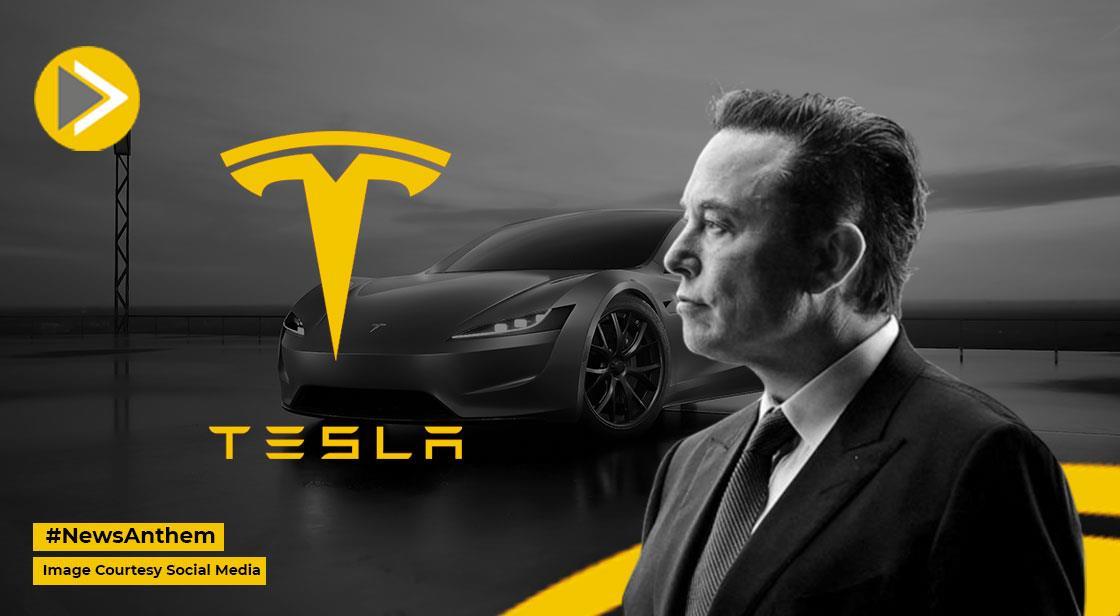Tesla Not Planning EV Production in India Anytime Soon, Confirms Union Minister

News Synopsis
In a recent statement, Union Heavy Industries Minister H D Kumaraswamy clarified that Tesla has no immediate plans to manufacture electric vehicles (EVs) in India, as reported by ANI. While the American EV giant is preparing to enter the Indian market, local manufacturing is not on Tesla’s agenda at present.
Tesla’s Current Focus in India: Sales, Not Manufacturing
Retail Presence Grows Despite Production Absence
Tesla has already made strategic moves to establish a presence in India. The company has finalized a showroom location in Mumbai’s Bandra Kurla Complex (BKC) and has hired over two dozen employees, including store managers and service personnel. However, "Tesla is not expected to manufacture electric vehicles in India in the near future," the Union Heavy Industries Minister H D Kumaraswamy reiterated.
Certification & Homologation Underway
Even though manufacturing plans are on hold, Tesla has initiated the certification and homologation process required to sell EVs in India. The company is reportedly preparing to launch its first EV in the Indian market within the next two to three months.
India’s EV Policy: Attractive, Yet Demanding
New EV Policy Introduced in March 2024
In an effort to attract global EV manufacturers, the Indian government rolled out a flagship Electric Vehicle policy in March 2024. The scheme allows companies to import up to 8,000 EVs annually at a reduced import duty of 15%, provided they commit to investing at least ₹4,150 crore (approximately $500 million) in setting up a local production facility within three years.
Application Timeline
-
Applications for this policy are expected to open soon
-
The scheme will be active until March 15, 2026
Stricter Criteria and Performance Requirements
Revenue Targets & Penalties
To ensure serious investment, the government has implemented stringent financial thresholds. Participating companies must:
-
Generate a minimum revenue of ₹5,000 crore in the fourth year
-
Reach ₹7,500 crore revenue in the fifth year
Failure to meet these benchmarks could result in penalties of up to 3% on the revenue shortfall, making it a high-stakes commitment for manufacturers.
Global Challenges Impact Tesla’s Strategy
Tesla’s decision to hold off on Indian manufacturing may be influenced by its current global situation. In Q1 of 2025, the company:
-
Recorded a 13% decline in global vehicle deliveries
-
Suffered a 71% drop in net profit
-
Witnessed its first annual delivery decline in over a decade
These numbers suggest that Tesla is likely reassessing global expansion plans, focusing more on stabilizing existing operations than taking on new manufacturing commitments.
While Tesla’s entry into India seems imminent from a sales standpoint, the company is not committing to local manufacturing for now, despite policy incentives. The Indian government remains optimistic about becoming a major EV hub, but high entry barriers may deter some global players amid a slowing worldwide EV demand.
Conclusion
Tesla’s decision to refrain from manufacturing electric vehicles in India—at least in the immediate future—comes despite the government’s aggressive push to attract global EV giants through its 2024 flagship policy.
While the company is taking concrete steps to establish a retail presence and complete regulatory formalities, it has opted for a more cautious, sales-focused entry strategy. This aligns with Tesla’s broader global challenges, including declining profits and delivery figures, which likely make high-capex investments less appealing at this time.
On the other hand, India, as the world’s third-largest car market, continues to offer immense potential for EV adoption. The new EV policy’s import incentives and firm production mandates are designed to spur long-term investment, but its stringent eligibility criteria may deter some players in the short run. Ultimately,
Tesla’s path in India may evolve depending on market response, global recovery, and how flexibly the policy supports sustainable business expansion.









